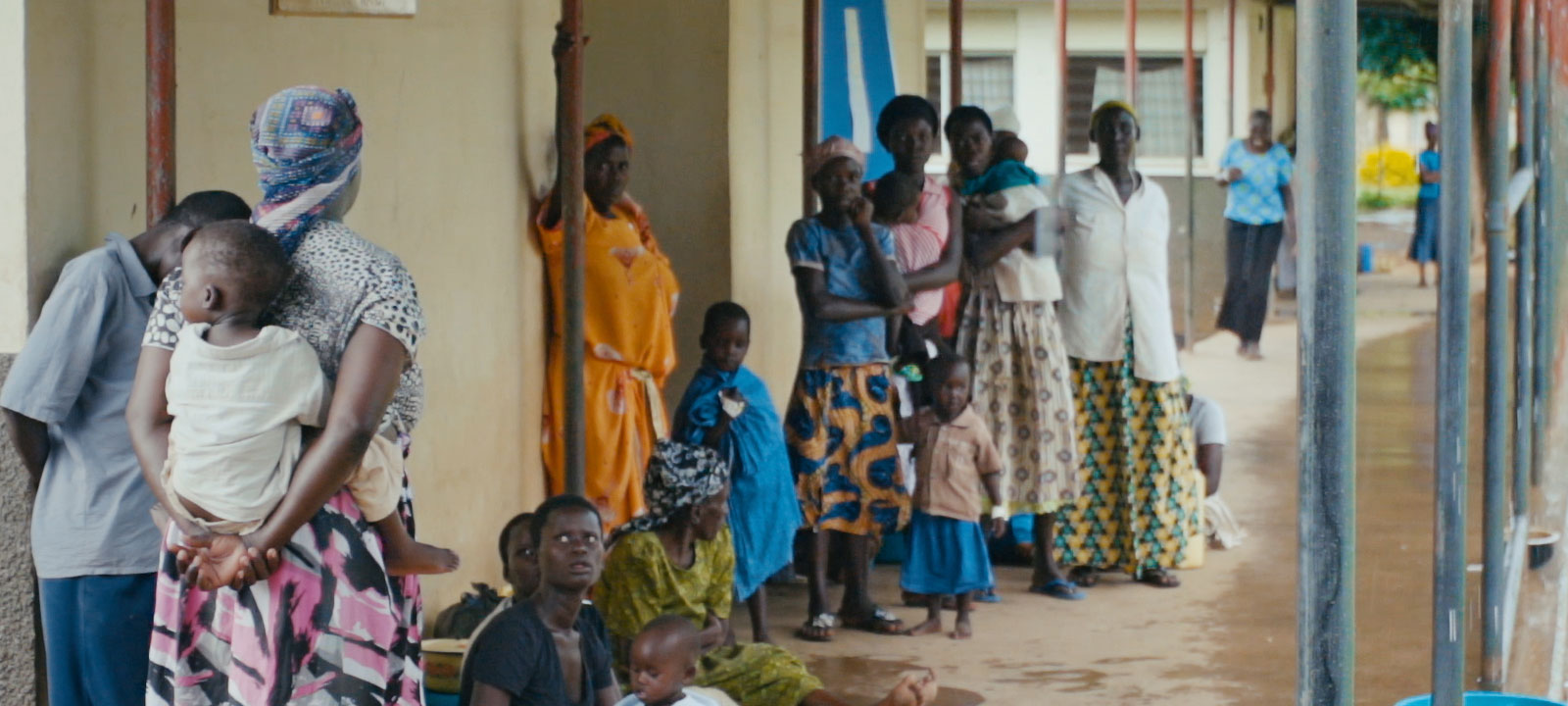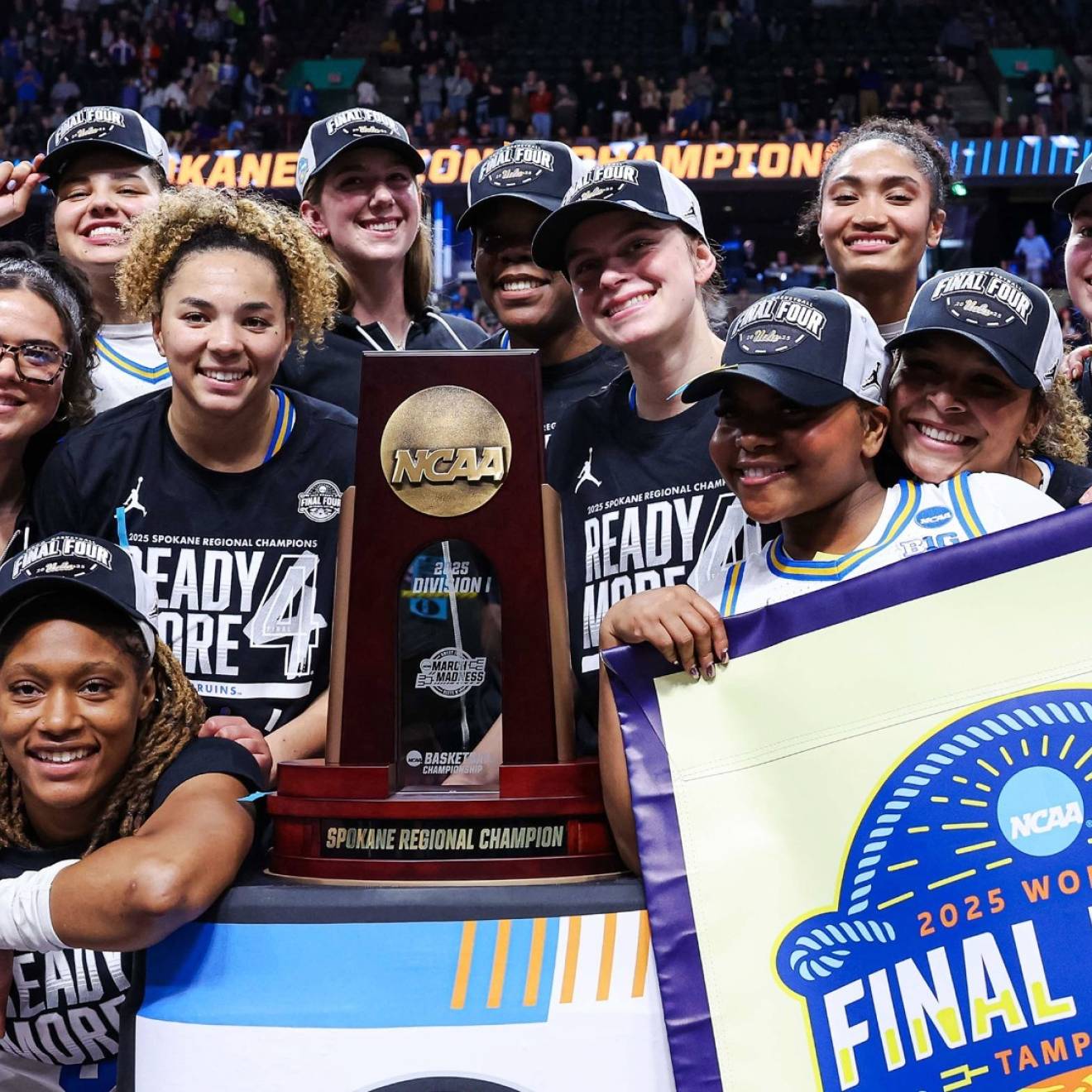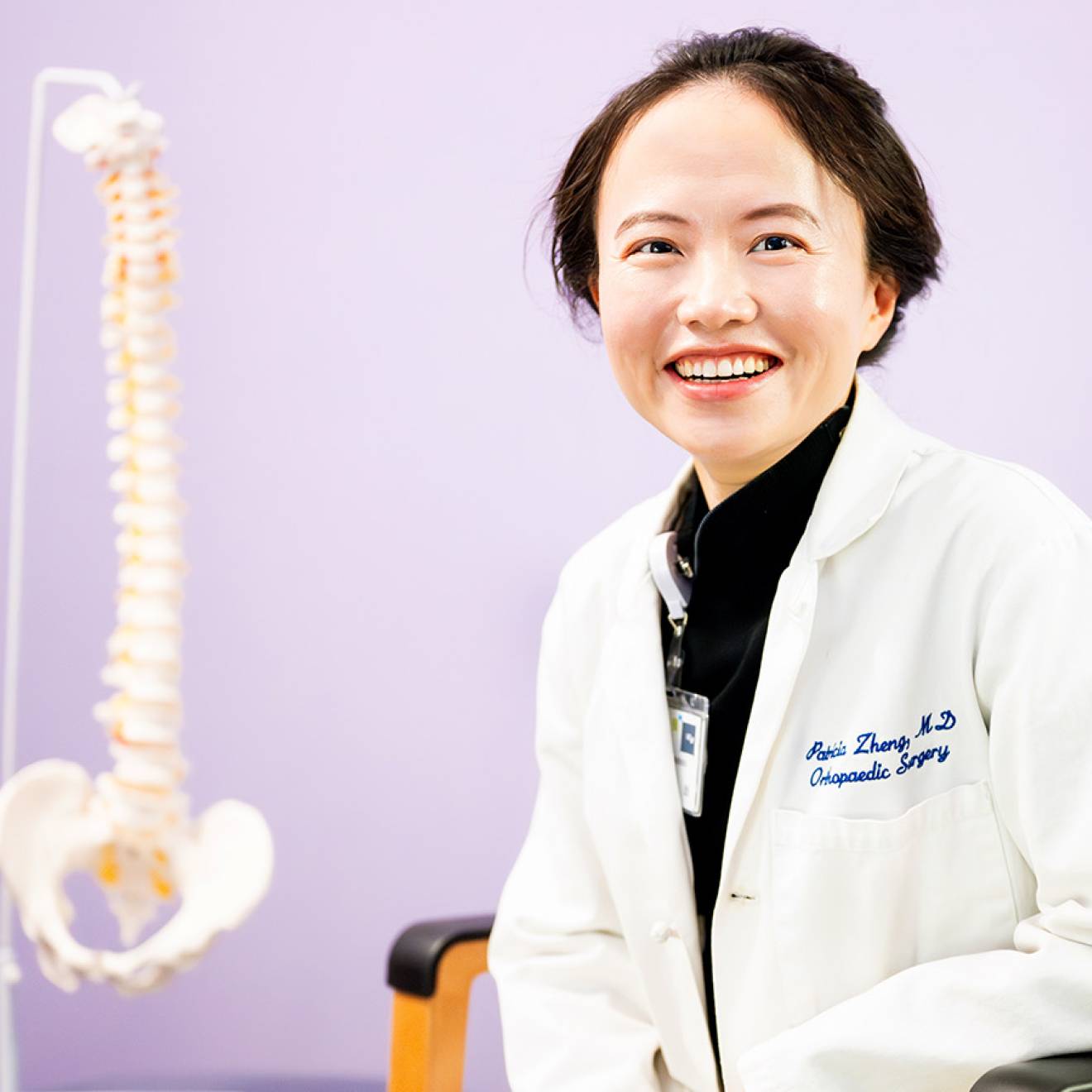There is no secret behind UC's prolific discoveries and inventions or its consistently high rankings: UC is powered by its people. The students, staff and faculty at each of the 10 campuses make UC great. For Women's History Month, we profiled a variety of women who use their talents to lift up others.
In our final piece celebrating the women on our campuses, we spotlight just a few of the women who share their love of community with our community, and work to empower others, no matter how near or far they may be.
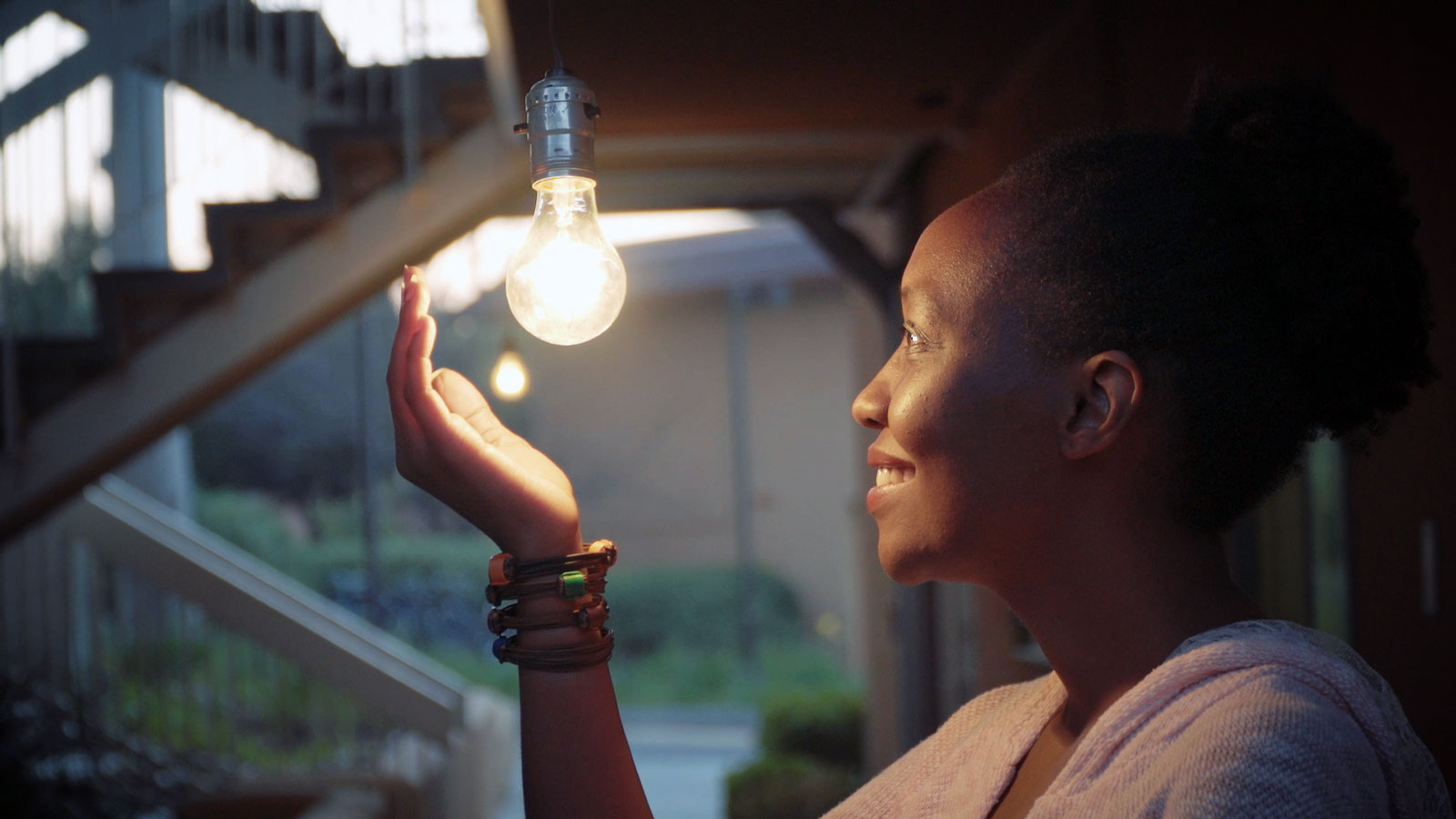
Lydia Natoolo, healer and helper
Campus: UC Irvine
Whether someone is suffering 9,000 miles away or in our backyard, Lydia Natoolo wants to help.
As an undergrad at UC Irvine, Natoolo founded her own nonprofit, Love A Community, to give back to villages in her home country of Uganda; she also became the president of the Associated Students of the University of California, Irvine, advocating against student homelessness, an experience she knows firsthand. She did all this while pursuing a biology degree, and graduated in 2018 with the goal of going on to earn a Ph.D. in public health and public policy.
While her drive is remarkable, the place it comes from is even more so.
“I remember growing up and there was no food at home. That little child who talks to herself would say, ‘I wish my father had money. I wish we had lunch. I wish someone would show up and bring food home.’”
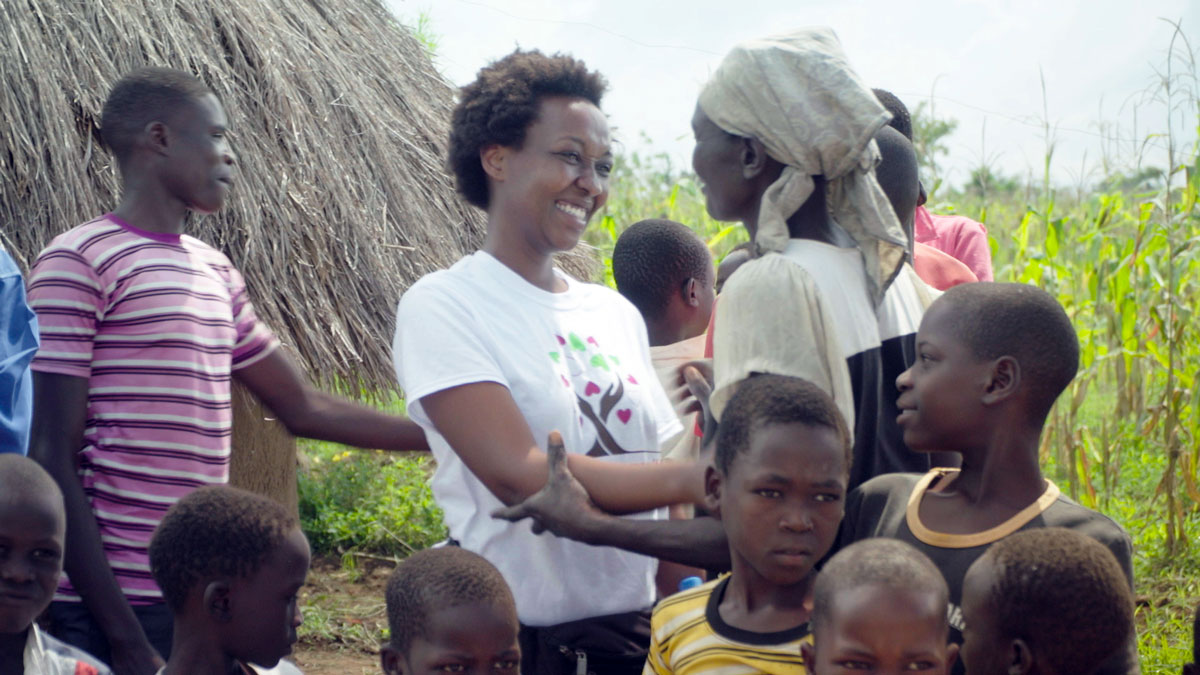
Lydia Natoolo embraces a mother in Atutur, Kumi District, eastern Uganda, where Love A Community was able to establish a clean water system and subsequently lower incidents of communicable diseases and mortality.
Natoolo is now that person who shows up. After reading an article in 2013 about a hospital in eastern Uganda with no running water and limited electricity, she founded Love A Community to raise donations and find solutions. On visiting the hospital, a local told her that other nonprofits had given up after finding the problems there too overwhelming. Natoolo’s efforts brought clean running water to the hospital and now, after receiving a huge donation this winter, will be bringing solar panels that can supply enough energy to provide for all the hospital’s needs. “For me that’s sheer joy,” Natoolo says. “That literally makes me keep going.”
Natoolo also gave back to her homeland by creating a business proposal to teach tailoring skills to women battling HIV/AIDS, earning a prestigious XIV Dalai Lama Endowed Scholarship from UC Irvine. Two of the students just finished an internship in Uganda.
Natoolo is also working to improve lives closer to home. In 2017, Natoolo was elected the president of the Associated Students of the University of California, Irvine, and decided to focus on a topic that was near and dear to her: student homelessness. Natoolo had lived out of her car for a time and knew what too many others were going through. “Young women reach out to me — I have to go back to my boyfriend because I can’t afford rent here. To know that students at UC Irvine are going through this, and we’re talking about student retention and success, how does this apply when students are struggling. How are they supposed to come to class and focus?”
“You don’t have a year — you have six months as student body president to make your case,” Natoolo says. “I went into boardrooms every day and said, ‘Never forget, there are students sleeping in their cars. There are students sleeping on couches.’”
“Now almost all the leadership at UC Irvine know about homelessness on college campuses. And now they say, ‘Lydia, thank you for what you did.’”
I just want to take away pain, even for one person.
Natoolo’s next move is to run for vice president of the Ugandan North American Association, the largest organization of Ugandans in the diaspora in the United States. She will also be applying to Ph.D. programs.
“I always go back to this space of pain, and I know somebody else is feeling this too. And I just want to take away that pain, even for one person.”
Natoolo has eased the pain for far more than one person. And she will no doubt help many more.
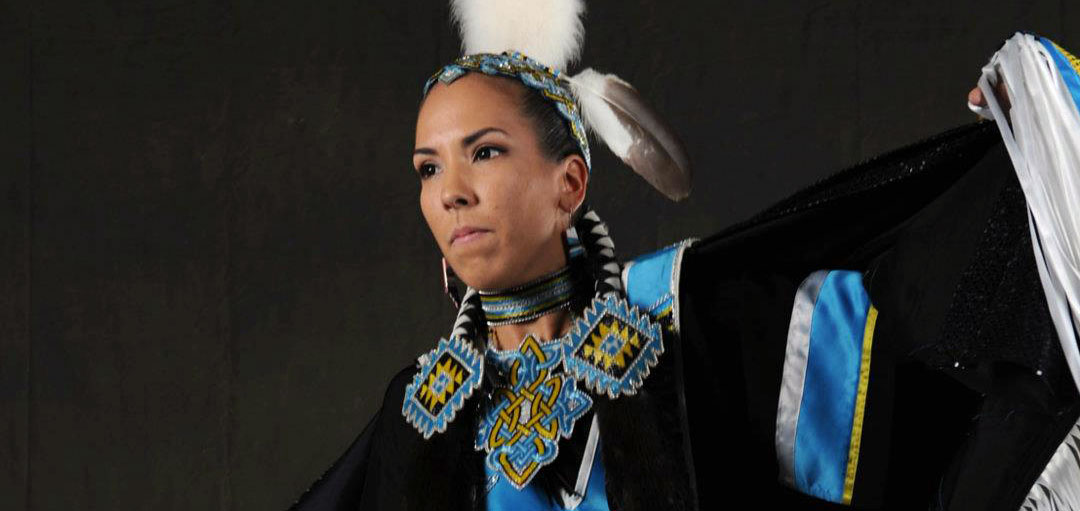
Nora Pulskamp, advocate
Campus: UCLA
Nora Pulskamp, an academic adviser and manager in the UCLA American Indian Studies Interdepartmental Program, had her first experiences on campus at a young age. Not as a teenager beginning her college search; she was two years old.
“UCLA never felt like it was out of reach for me because every year I would go to the UCLA Pow Wow, I’d dance, climb on the bear statue, see my friends, and it gave me this opportunity to feel at home on that campus from a very, very young age.”
The UCLA Pow Wow, sponsored by the American Indian Student Association, is now entering its 34th year. It celebrates American Indian culture through intertribal singing, dancing and other exhibitions, and provides a space in Los Angeles for Native students and non-students alike. Pulskamp, who is Navajo, has been to every pow wow since they began to be held annually; the event has been a through line in her life of service to her community.
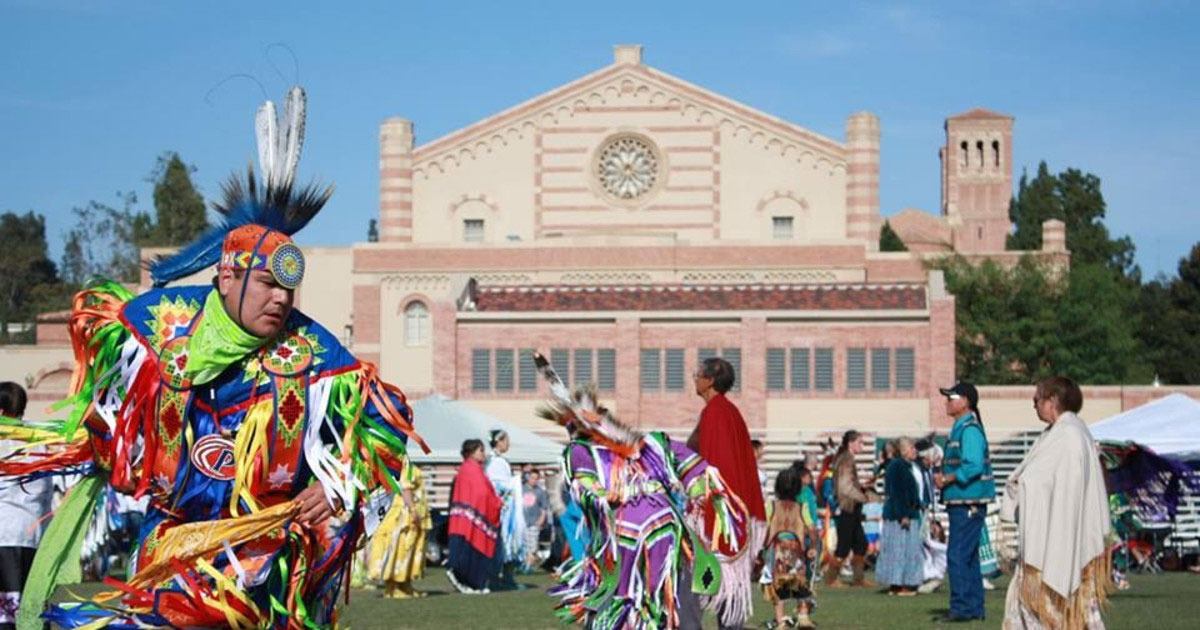
A UCLA Pow Wow
Pulskamp grew up in the San Fernando Valley; her mother is from a rural area of the Navajo reservation in northern Arizona but came to California to attend Sherman Indian Institute, a federally run Indian boarding school in Riverside. During this time, Indian boarding schools still operated as institutions of forced assimilation. It was here that Pulskamp’s mother spent five years away from her family, was taught to speak English and given a new name.
Pulskamp loved school unabashedly as a child; but her mother’s experience and that of so many others caused her to reflect on how education can be used as a weapon. “As I got a little older, I began to question things a bit more for myself. I started thinking about what Western systems of education were designed for, and began to see more and more instances where it was apparent that it was not designed to benefit Native American people.
“I think the creation of Indian boarding schools was one of the most detrimental acts against our community, because of the way it ripped apart our families. For almost a hundred years, the forced removal and assimilation of Native children was the policy governing Indian education. Because of this, generations of Native children didn’t get to see what healthy family life would be, or learn important cultural knowledge in a way that would normally happen. My mom’s experience with education, how that led to me being in Los Angeles, and how it shaped my relationship with education and the world around me, is a huge part of why I’ve been doing advocacy work in higher education.”
As warm and inviting as the UCLA Pow Wow is, the college environment in general for Native students can still be very isolating.
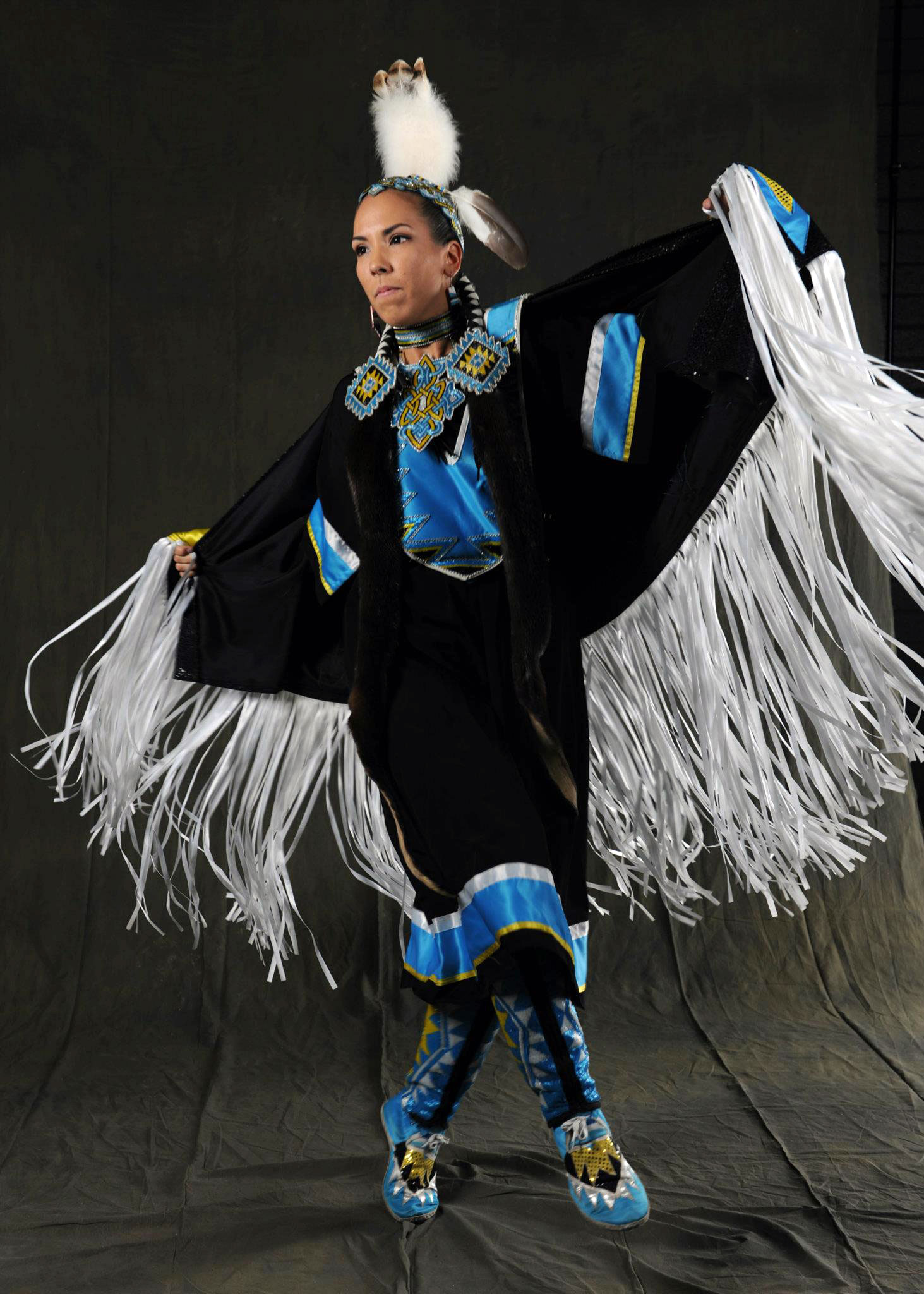
Nora Pulskamp, former Ms. UCLA Pow Wow.
“As a child, I felt at home at the UCLA Pow Wow and I transferred those feelings to UCLA as a whole, which is why I wanted to come here as an undergraduate student,” Pulskamp says. “However, once I was here as a student it was jarring how out of place and disconnected I felt, which is why I struggled for those three years.”
On-campus services and support programs helped catch her when she needed an embrace from community at school, Pulskamp says. But trips off campus were also important for Pulskamp to reconnect herself with family and community, and she encourages her advisees to do the same, both to recharge and to help them be their authentic selves at UCLA. “I want to let them know that their connection to their communities has value,” Pulskamp says. She wants students who come into her office to have a familial experience, to know someone on the administrative side of things is deeply invested in their success and can help them open doors they need to open.
“The reason I do the work I do now, is because I know how inhospitable of an environment college can be for Native people. I want them to know they have an in, they have an ally on the other side.”
Extracurricularly, Pulskamp works with the American Indian Alumni of UCLA, and is involved in a few organizations that bridge different university systems. She also gives presentations to students in middle school through college, and consults professionals in higher education and other fields who are considering ways to improve their relationship with Native communities. “I try my best to be everywhere I can be,” she says. “I can’t turn my back on my family, and I consider the students and people in the Native community family.” The obstacles she sees her students and their families disproportionately face frustrate her, but the knowledge that her work can have a direct impact in overcoming or removing obstacles provides strength.
One of her most memorable titles was Ms. UCLA Pow Wow, a distinction she earned in 2011. Pulskamp thinks of herself as shy, but the opportunity to represent the UCLA Pow Wow proved irresistible: “When I was a child I danced at pow wows and it was exciting to watch other young girls win pageants. I really wanted to be a part of that, but I was far too shy. By the time the UCLA Pow Wow had its first pageant in 2010, I was still shy, but I was excited by the opportunity to represent this particular pow wow because of my personal connection to it.” She came up just short in year one, but in year two, she won the crown, and became the role model for children she once looked up to herself.
“It was really amazing to see the kids that would come up to me, little girls, they would just be so happy. At the same time, it was giving me this opportunity to ask them about school, talk to them about college, let them know they can come visit UCLA and see the campus. For the real young ones, they probably won’t even remember that, but hopefully, the older girls I would talk to, would get something from that, talking about my experience going to college and working in higher education.
Ms. UCLA Pow Wow is forging a relationship between UCLA and the Native community in a way that has never been done.
“Especially when I was able to speak with youth from my tribe or areas where my family is from, which was very rural, it was always surprising for them to see me and find out I have this connection to where they’re from, to have them suddenly see themselves in me, ‘oh she’s from my hometown, her family’s from here, she knows what it’s like to be herding sheep all summer, and she’s at UCLA!’”
“The Ms. UCLA Pow Wow title is significant because the person carrying that title is bringing UCLA to the Native community in a space that is uniquely ours. Pow wows are not performances, the singers and dancers are not coming together to put on an exhibit for spectators. We are there to dance, to sing, to pray, to be with family, and to build community. As a dancer, Ms. UCLA Pow Wow is forging a relationship between UCLA and the Native community in a way that has never been done.”
Though she is no longer Ms. UCLA Pow Wow, Pulskamp remains an ally; a vital link for Native students who deserve to know that UCLA, and higher education, belongs to them.
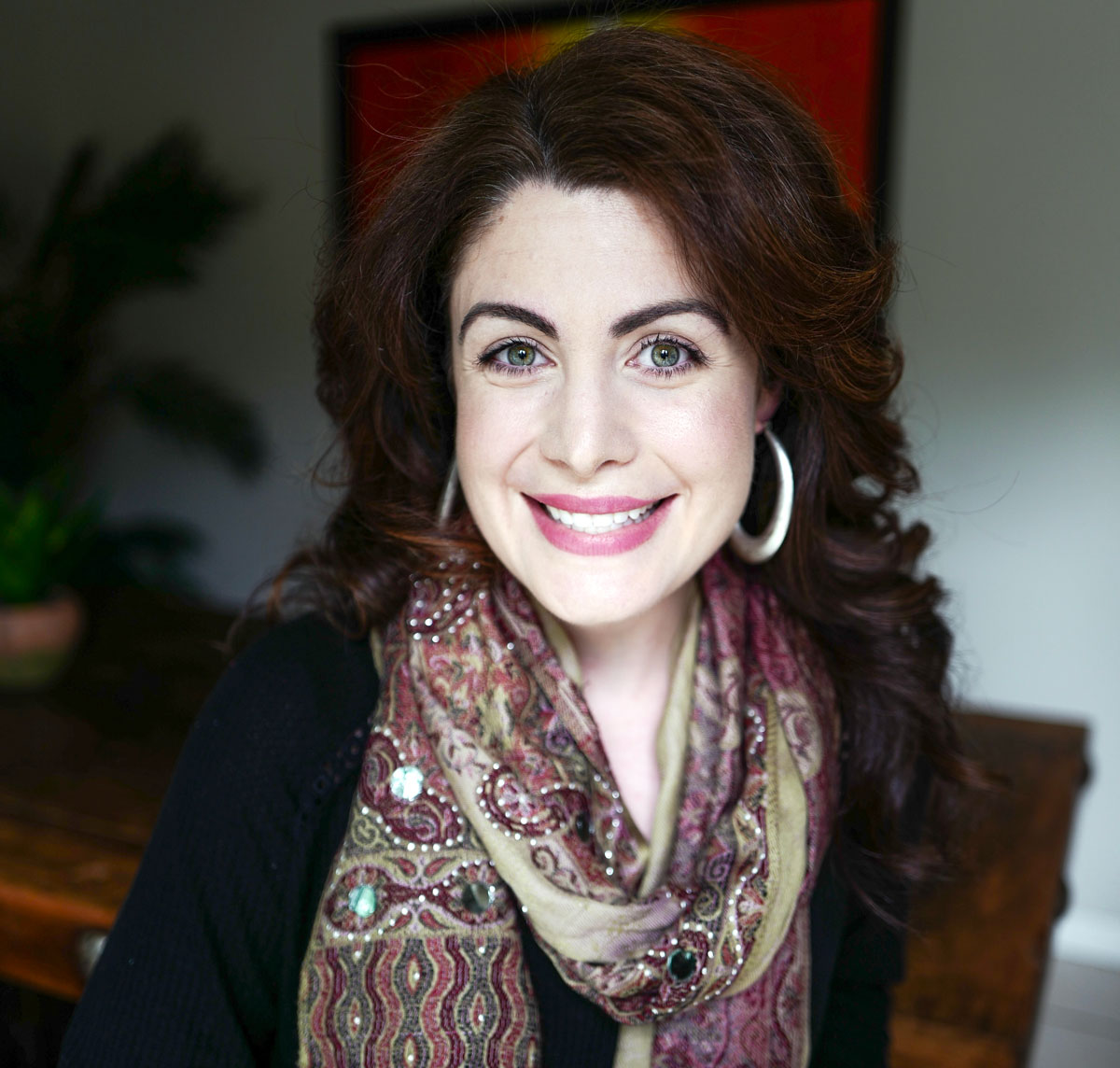
Rebecca Calisi Rodríguez, scientist
Campus: UC Davis
For Rebecca Calisi Rodríguez, being a scientist and a professor is “the best job in the world.” It’s a source of joy, endless curiosity, a place to bring together artistic instinctiveness and rigorous method, a constant journey.
But it wasn’t always like that. Just a few years ago, Calisi Rodríguez was prepared to walk away.
“Even though I was at this amazing research university [UC Davis], and had research money, and great students, probably the ideal situation a professor would want, everything was going really well for me — I decided I was going to leave.”
The reason Calisi Rodríguez was ready to leave was the culture — not at UC Davis, specifically, but in academia in general. She worked hard and got her Ph.D. in biology from UC Berkeley faster than anyone in her department had in a decade. She loved studying animals and learning what their biology can tell us about environmental health, a quest she had been on since her days as a muralist at the Dallas Zoo, connecting the moods of less than amorous okapi with their levels of cortisol and mechanical noise. But a culture of inevitable burnout, publishing compulsively at the expense of real creativity — what she calls the “publish or perish prison” — accompanied by the neglect of one’s family, interests and needs, was no longer sustainable. Having children (she has two) made it clear to her that she wanted to serve as a model for them.
“I wanted them to see that mom isn’t going to settle, and neither should they. So I decided I’m going to be part of changing the culture, or I’m going to leave it.”
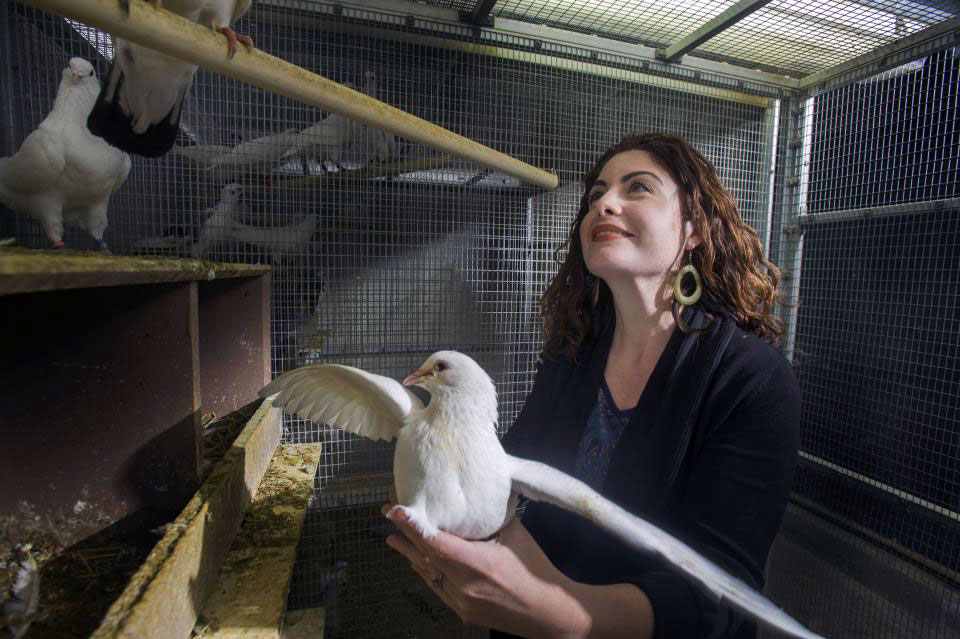
Rebecca Calisi Rodríguez with one of her research subjects: pigeons.
Figuring that she was going to leave anyway, Calisi Rodríguez started speaking up: About what she needed as a mother of two young children. About being a Mexican-American woman scientist in a male-dominated field. About wanting to incorporate advocacy and communication into her work (she had, after all, taken her bachelor’s in psychology and studio arts). And about wanting to strike a balance between all of these things.
“As I became my authentic self, I spoke my mind — I would never speak up in male-dominated faculty meetings, and then finally I didn’t care anymore! As I started to speak up and hold true to my opinions, I realized my department really valued them. They listened to me, they respected my confidence, and a lot of changes began to happen.
“Letting my personality shine, my desire to show my family comes first, all the things that are super important to me, I’m going to absolutely not work myself to the bone but to do these things within the time I will give them. Which means I wasn’t going to spend as much time on my research. It might mean I might not get tenure, but I was fine with that.
“When I started being incredibly true to my desires, and voicing my opinion without fear, then I saw that things started to change.”
When I started being incredibly true to my desires, and voicing my opinion without fear, then I saw that things started to change.
Other women and underrepresented minorities began showing their support as Calisi Rodríguez articulated the frustrations she felt as a scientist from a non-traditional background in getting attention for her work and feeling comfortable and safe in the workplace. Most notably scientist mothers, who would fly into conferences, babies in tow, focused on advancing their careers and just needing to pop in and breastfeed before the next presentation — only to find themselves searching down long and empty hallways for shabby lactation rooms, steep and supposedly inclusive registration fees be damned.
The problem was galling, but as Calisi Rodríguez recounted in Scientific American, once she voiced the issue, she began to see change: the conference brought in more comfortable accommodations and more soothing lighting, changing the arrangement of the room to better suit the mothers and children. After the conference, she organized a working group of 45 fellow mothers-in-science who published an article in the prestigious Proceedings of the National Academy of Science (greeted by a number of rejections elsewhere), setting out simple steps to make conferences more family-friendly. As she said at the time, “nursing and childcare, most often provided by women, are not a luxury; they are a biological necessity.”
Calisi Rodríguez was able to articulate to UC Davis the importance of these steps for inclusion, how they could help the university, its students, her field and science itself.
“And the moment I did that, all the doors opened. I feel that my confidence, my non-traditional background that has given me all these experiences, have really made me as a professor unique. And the good universities, like UC Davis, grab onto that. And they support them. That’s what’s going to help change the culture and create more room for bringing more people to the table. Broader contributions made by more diverse groups of scientists in unique ways that you can’t write into a job description.
“By fostering that, and letting people grow, in a non-traditional way, that is really where the big discoveries, and the big changes, are going to happen.”
Now that she has her voice, there is no going back. Calisi Rodríguez recently finished shooting a digital series on Latina women in science as its co-creator and host, funded by the National Geographic Society, and continues to speak at conferences on her research, childcare and other health issues, candidly discussing her postpartum depression in order to bring more attention to the need for mental health resources (and empathy) in academia. She also uses her platform to bring issues related to race to the forefront in science, while acting as an ally for other underrepresented groups.
I have the privilege to take risks, and I’m absolutely going to use that privilege to make things better for others.
“Things have only really gotten done in history because of boat rockers. You’re damn right I’m going to take risks!” Calisi Rodríguez says. “What happens if you don’t? You don’t know what great things can be unless you risk it all, unless you take risks, you don’t know how great you could be, how great things could be.
“I’m lucky because as a Latina who presents as white, as someone not scared to leave academia at any time, I have the privilege to take risks, and I’m absolutely going to use that privilege to make things better for others. For marginalized communities like those I grew up in and those who have ingrained in me the value of bringing my authentic self to the table. We lift each other up. And I must do that for others in my work. Staying the course and living an ordinary life has never been for me. So, I’m using this fire I have inside to take the risks needed for big changes to happen.”
For Calisi Rodríguez, big, positive changes have already happened. Expect her risks to keep paying off.
